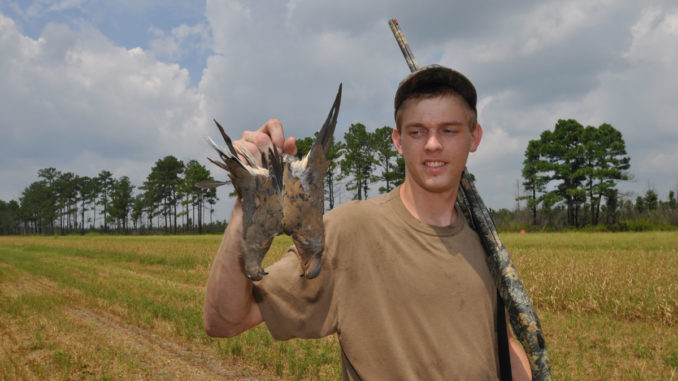
A little scouting, plenty of doves coming to prepared fields and some dead-eye shooting can make opening day of dove season one to remember.
When people think of mill ponds, they usually associate them with fishing or hunting waterfowl. This is the tale of two mill ponds that have dove hunting as their September focus. One is The Mill Pond Hunting Club, a privately owned, historic club located near Whiteville in Columbus County. The other is Suggs Mill Pond, a N.C. Wildlife Resources Commission game land located near Elizabethtown in Bladen County.
While traditional dove hunts began as a way of taking advantage of an opportunity for abundant shooting after farm fields were harvested, the managers of both of these properties plant fields for specifically to attract doves for hunting during the Labor Day weekend.
The Mill Pond Hunting Club holds its opening-weekend dove hunt in the traditional manner, as a grand celebration of the opening of the hunting season for its members, their families and guests, complete with a barbecue dinner of their harvested doves, pig and roasted oysters after the opening day hunt.
Suggs Mill Pond Game Land is open to anyone who draws a permit through the Commission’s Special Hunt Opportunities program. Those lucky enough to participate are more likely to sit on pickup tailgates sharing stories of the day’s hunt over cold soft drinks hauled from an ice chest and cans of pork and beans stashed in a tool box.
Rick Edwards owns The Mill Pond Club, and his son, Richard Edwards, oversees the planting of the dove fields adjacent to the 68-acre mill pond, which was constructed before the Civil War to power a sawmill.
“When I first bought the property, I was thinking about developing it,” Rick Edwards said. “But, it was so beautiful I thought again. As I learned of its history and rich and fishing hunting traditions, I decided to maintain it as a private club.”
Vinson Bowers grew up in a modern home built in the late 1950s that overlooks The Mill Pond. The original hunting cabin, which Bowers calls “The Camp,” was built in 1925 and, beginning in 1928, provided sleeping quarters for hunting and fishing parties that included millionaire industrialists like Chick duPont. In more recent times, politicians Jesse Helms and Ross Perot have visited or hunted.
“I am one of the eight current members,” Bowers said. “When I come to hunt, I still sleep in my childhood bedroom. My happiest memories were of hunting and fishing, so I am glad Rick and Richard have maintained the character of our family’s former home.”
Hunters gather before dawn, waiting their turns for a horse-drawn wagon to carry them to their hunting positions. Those who could not wait hurried on their way. The shooting began immediately after legal shooting hours arrive, with doves leaving the sunflower and corn fields and circling back to return.
“I always get out on opening day to hunt,” said member Carlton Williamson. “It’s a tradition. I would not miss opening day out here with my friends.”
As the steamy heat of September grew heavier, Rick and Richard Edwards circled the fields in ATVs bearing cold soft drinks and ice water for overheated members and their guests. Neither of them had a shotgun.
“I don’t hunt at all,” Rick Edwards said. “For me, the satisfaction is more about the social aspects of the hunt. On the other hand, my wife, Abbie, likes to shoot a few doves and visit with all of the other hunters out in the field. I enjoy the cooking, the eating and the fellowship. Most of all, I like seeing all of the families, especially the children and grandchildren, enjoying themselves. It is a huge family event in a very Southern way. At our opening day celebration dinner in the evening, we have games for the kids and live music. We may have several hundred invited guests, and most of them don’t hunt.”
“I love to hunt doves,” Richard Edwards said, “but I don’t participate on opening day because I am busy taking care of all of those things behind the scenes that make it such a success. If opening day falls on Saturday, though, I might hunt on Labor Day. I’m more interested in seeing how well our work has gone and how many birds what we have planted has attracted for our members and their guests. We have 40 to 60 people who actually hunt on opening day, and we want to be sure we have plenty of room for them all, with lots of birds for them to try to hit.”
Modern farming practices are not as reliable at attracting doves as they once were. Corn was once cut for silage to feed cattle, a practice seldom seen these days, and many cornfields were once planted so they would mature in late August. Now, only a small percentage of corn is harvested before Labor Day, making finding a place to hunt in southeastern North Carolina much more difficult. The Mill Pond’s dove fields consist of about 12 acres of harvested corn, several acres of standing corn surrounding the harvested area and about four acres of sunflowers through which Richard Edwards had mowed access lanes.
“If we don’t mow paths through the corn and sunflowers, the morning glory vines get so thick, it is hard to get to a downed dove, let alone find it.” Richard Edwards said. “For me, the dove season never really ends. We will harvest and mow the fields to keep doves over as much of the season as we can. After that, I am already working on rotating the fields into crops for deer and planning our dove-field plantings to be compatible with those rotations so we can host another great dove hunt next year. It is a never-ending process.”
Buddy Leatherman, another club member taking part in the hunt, was sitting with his Labrador retriever, Buster, ready to close out his limit of 15 doves.
“I like sitting near a power line because doves will fly along it or try to land on the wires,” Leatherman said. “I also try to find some shade for Buster and hunt near a ditch so he can cool off in the water. If the ditches are dry, I might have to walk across the road to The Mill Pond so he can take a swim.”
An hour’s drive north, at Suggs Mill Pond Game Land, pickup trucks and jeeps were gathered in the scant shade offered by scattered pines along the edge of the airstrip. Hunts at Suggs Mill Pond were once private when International Paper Company owned the property. The old clubhouse is now used as an office for Commission personnel. The end of airstrip near the Commission depot was planted with milo, and signs warned hunters to stay out of that safety zone. The rest of the airstrip was planted with browntop millet; Commission personnel had mowed strips in the millet to attract doves.
The hunters included Steven Jackson, his wife, Tammy, and son, Tanner, from Raeford. They had entered a permit drawing for 60 open slots and had received permits for opening day.
“We put in for the draw as a party of three,” said Steven Jackson. “We scouted two days just before opening morning.”
Steven Jackson said several other hunters had left the field, taking home their limits or perhaps waiting out the heat to return later in the afternoon.
“I shot better last year, when we also got drawn for this hunt,” he said. “Tanner is the one sitting in the lucky spot this year; he has been shooting all the doves.”
Tanner Jackson was sitting next to a Carolina bay that had recently been subjected to a prescribed burn. The lower portions of the bay growth were thick and green, while the upper limbs of the bay bushes were charred skeletons.
“I lost a couple of doves in the bay,” said Tanner Jackson. “They are hard to find in there, but I have 10 doves, so far. They quit flying around 10:30; they should begin flying again about 4:30, when it cools off.”
Tammy Jackson said she would do the cooking after the hunt and everyone smiled at the thought of dove for dinner. She said the way she would cook the doves would depend upon how many doves the hunters bagged.
“I cook doves a couple of ways,” Tammy said. “I cook some rice and boil the dove breasts until the meat comes off the bone, then I make some canned chicken soup and pour it over the rice and put the dove meat on top.”
Doves and rice is a traditional recipe that is tailor-made for dinner when lots of hungry folks show up to eat and there are less than two to four doves per person. A dove breast only yields a couple of ounces of dark, flavorful meat. However, when doves are plentiful, or when preparing dinner for only three, Tammy puts dove breasts on a grill.
“All I do is wrap them in bacon and cook them,” she said. “Sometimes, in either recipe, I season them with adobo (a Spanish style seasoning). I put some on the doves and add a little water to make a marinade that takes out the gamey flavor. Then, after it is cooked, everyone can season it with adobo to suit their own taste.”
DESTINATION INFORMATION
HOW TO GET THERE — To reach Suggs Mill Pond Game Land, take NC 53 south from Fayetteville toward Elizabethtown. Turn left onto Gum Springs Road and drive six miles; the entrance is on the right. Locations of dove fields are at www.ncwildlife.org.
WHEN TO GO — Permit-only hunts will run on Suggs Mill Pond Game Lands on Sept. 5, 7, 12 and 15, but hunters can purchase a special point-of-sale permit that allows hunting from Sept. 16 to the end of September after the permit hunts are over.
EQUIPMENT — Fast-handling shotguns are best for doves. A double barrel 20-gauge is a good choice, loaded with No. 7 ½ or 8 shot. Best chokes are improved cylinder and modified.
HUNTING INFO — Richard Edwards, Mill Pond Hunt Club, 910-279-1983; Suggs Mill Pond Game land, www.ncwildlife.org.
ACCOMMODATIONS — Motel 6, Fayetteville, 910-485-8122; Suggs Mill Pond Game Land has a primitive campground.
MAPS — DeLorme’s North Carolina Atlas and Gazetteer, 800-452-5931, www.delorme.com.

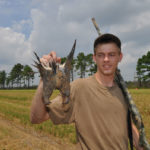

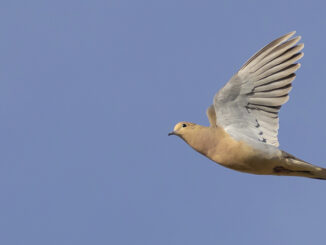
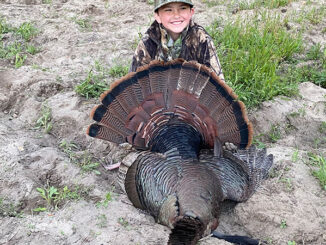
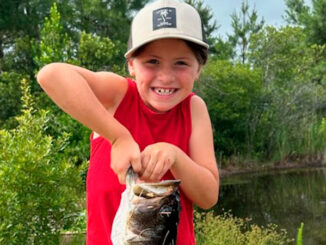

Be the first to comment